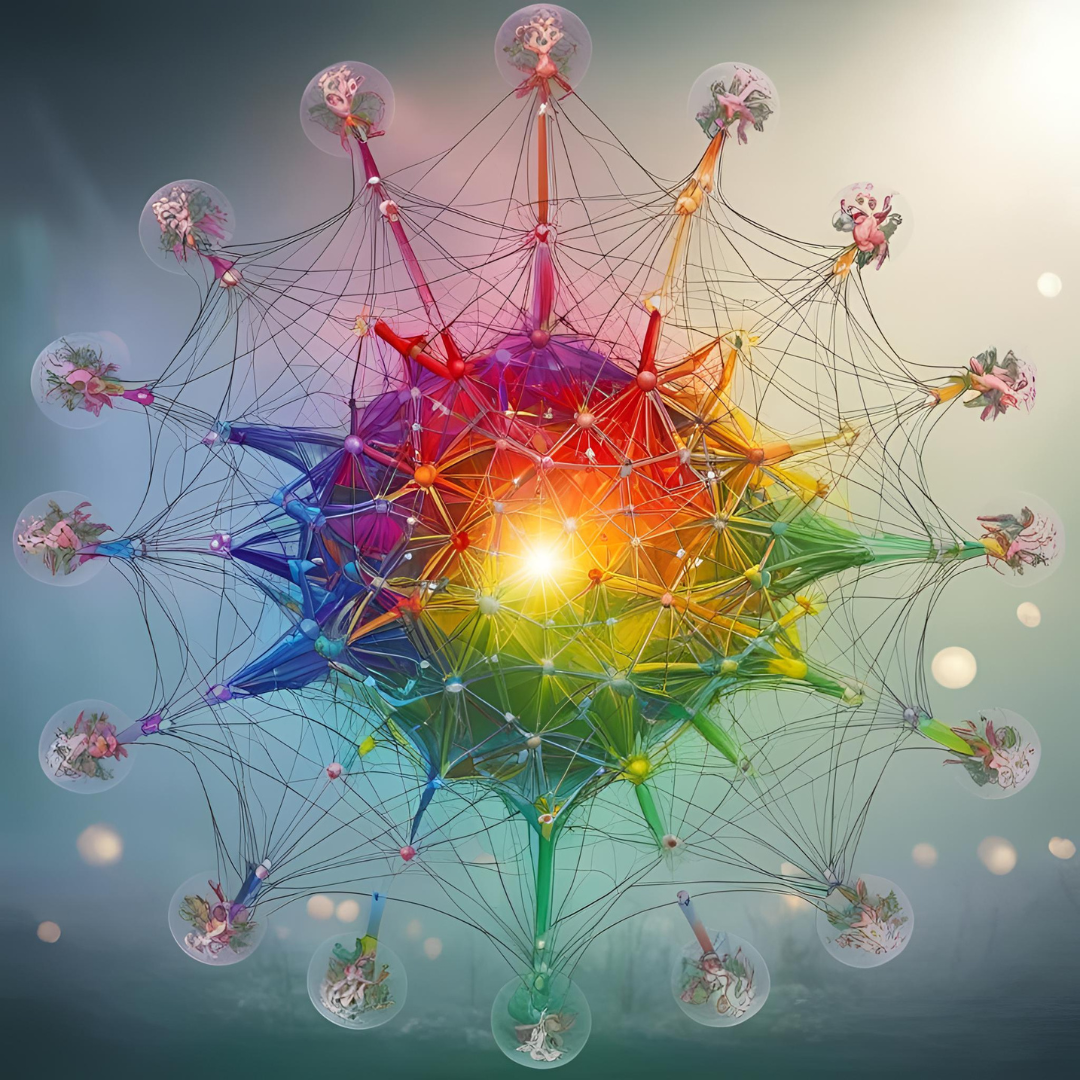The Emotional Root of Chronic Illness: Is There a Connection?
“Emotional healing, whether through therapy, mindfulness practices, or mind-body techniques like yoga, can play a crucial role in recovery.”

Chronic illness has long been a topic of intense medical research and attention. From autoimmune diseases to cardiovascular conditions, countless physical ailments have been studied and treated in various ways. However, an intriguing aspect of chronic illness that has gained increasing attention is the role of emotional and psychological factors in its development and persistence.
Could unresolved emotional trauma and stress play a pivotal role in triggering or exacerbating chronic conditions? And can emotional healing be a key part of the recovery process? These are questions that are becoming more prominent in medical discussions, especially as holistic approaches to health gain traction. In this article, we will explore the potential connection between emotional health and chronic illness, as well as examine how ancient traditions, such as yoga and Chinese medicine, have long embraced the concept that physical ailments often have emotional roots.
The Emotional Connection to Chronic Illness
The link between emotions and physical health is not a new concept. For centuries, various healing traditions have postulated that our emotional and mental states play a crucial role in our physical wellbeing. Modern science is now catching up, with research showing that unresolved trauma, chronic stress, and negative emotions can indeed influence our body’s immune response, hormonal balance, and even the expression of genes.
When we experience stress or emotional trauma, our bodies release stress hormones such as cortisol and adrenaline. While these hormones are essential for immediate “fight or flight” responses, chronic elevation of these stress hormones can lead to a range of health problems. For example, prolonged stress has been linked to cardiovascular disease, digestive problems, autoimmune disorders, and even cancer. The constant fight-or-flight response can weaken the immune system, causing it to misfire and attack healthy tissues, as seen in autoimmune diseases.
Unresolved emotional trauma, such as childhood abuse, grief, or major life stressors, can be stored in the body in ways that aren’t immediately apparent. This emotional baggage may manifest physically through conditions like fibromyalgia, chronic fatigue syndrome, and irritable bowel syndrome. The body, in essence, “remembers” the unresolved emotional wounds, and these memories may later show up as chronic pain, inflammation, or fatigue.
The Role of Emotional Healing in Recovery
Healing from chronic illness is often a multifaceted process, involving not just physical treatments like medications or surgery but also addressing the emotional and psychological aspects that may be contributing to the condition. Emotional healing can be achieved through various approaches such as therapy, mindfulness practices, journaling, and meditation.
One of the most compelling ways emotional healing is integrated into chronic illness recovery is through trauma-informed therapy. Trauma-informed therapy is designed to help individuals address past emotional wounds that may be affecting their mental and physical health. By exploring and processing these past experiences, individuals can reduce the emotional charge associated with them, ultimately relieving some of the physical symptoms linked to stress and trauma.
Mind-body techniques such as meditation, deep breathing exercises, and yoga are also powerful tools for emotional healing. These practices help individuals reconnect with their bodies, reduce stress, and bring awareness to the emotional patterns that may be contributing to chronic health conditions. In particular, mindfulness meditation can be effective for those dealing with pain, as it encourages a non-judgmental awareness of the present moment, which can reduce the emotional suffering that often accompanies chronic illness.
Ancient Traditions and Their Holistic Approach to Health
While the scientific exploration of the emotional root of illness is relatively new, ancient healing systems have long understood the connection between emotional and physical health. Practices such as yoga, Traditional Chinese Medicine (TCM), and Ayurvedic medicine have always integrated the emotional state into their diagnosis and treatment of physical ailments.
Yoga, for example, recognizes the deep connection between the mind, body, and spirit. According to yogic philosophy, physical illness is often a result of imbalances in the body’s energy systems, known as the chakras. These energy centers are thought to correspond to different emotions and physical organs. For example, the heart chakra is linked to emotions like love and grief, while the throat chakra is associated with communication and self-expression. If a person experiences emotional blockages in these areas, it may manifest as physical symptoms related to the corresponding organs or body parts.
In yoga, asanas (physical postures), pranayama (breathing exercises), and meditation are used to clear these emotional blockages, promoting balance and healing in both the body and mind. By addressing the emotional roots of physical symptoms, yoga practitioners have found relief from conditions such as chronic pain, anxiety, and digestive issues.
Traditional Chinese Medicine (TCM) also takes a holistic approach to health, viewing the body as an interconnected system of physical, emotional, and spiritual aspects. According to TCM, illness occurs when there is a disruption in the flow of energy (Qi) through the body. Emotional states like anger, fear, and sadness are believed to affect the flow of Qi and contribute to physical illness. For example, anger is associated with the liver, while fear affects the kidneys. TCM practitioners use acupuncture, herbal remedies, and dietary changes to restore balance to the body’s energy system and address both the emotional and physical causes of illness.
Ayurvedic medicine, the ancient healing system of India, also links physical health with emotional well-being. In Ayurveda, health is seen as a balance of the three doshas (Vata, Pitta, and Kapha), which govern physical and mental processes. Emotional imbalances such as stress, anxiety, and depression can disturb this balance, leading to physical ailments. Ayurveda emphasizes the use of diet, lifestyle modifications, meditation, and yoga to restore harmony between the mind, body, and spirit.
Integrating Emotional Healing into Modern Medicine
As Western medicine continues to evolve, there is growing recognition of the importance of emotional health in the treatment of chronic illness. Integrating emotional healing into the recovery process can complement traditional medical treatments, providing a more holistic approach to health. Many doctors and practitioners now recommend mind-body practices like yoga, meditation, and therapy to help patients manage chronic conditions, reduce stress, and promote emotional well-being.
By acknowledging the emotional roots of chronic illness, healthcare providers can offer more comprehensive care that addresses the underlying causes of disease, rather than just treating symptoms. Furthermore, patients who embrace emotional healing alongside conventional treatments often experience improved outcomes, including better pain management, enhanced quality of life, and increased resilience in the face of chronic illness.
Conclusion
While the link between emotions and chronic illness is complex and still being explored, there is no denying that unresolved emotional trauma and stress can contribute to the development and persistence of physical health problems. Emotional healing, whether through therapy, mindfulness practices, or mind-body techniques like yoga, can play a crucial role in recovery.
Ancient traditions such as yoga, Traditional Chinese Medicine, and Ayurveda have long understood the interconnectedness of mind and body, and their holistic approach offers valuable insights for modern medicine. By embracing the emotional roots of chronic illness and integrating emotional healing into treatment plans, we may open new pathways to health and well-being—creating a future where we address not only the physical symptoms of illness but also the emotional imbalances that may underlie them.
